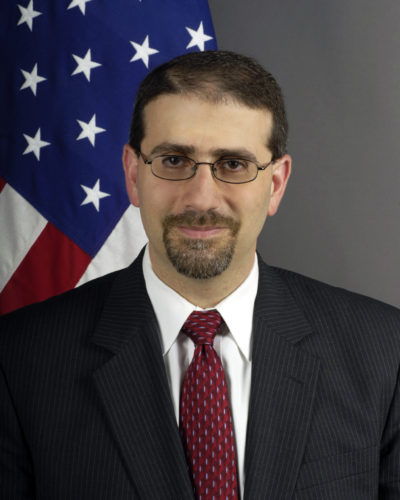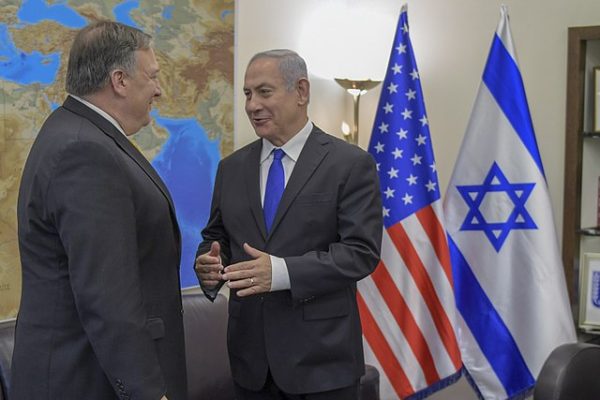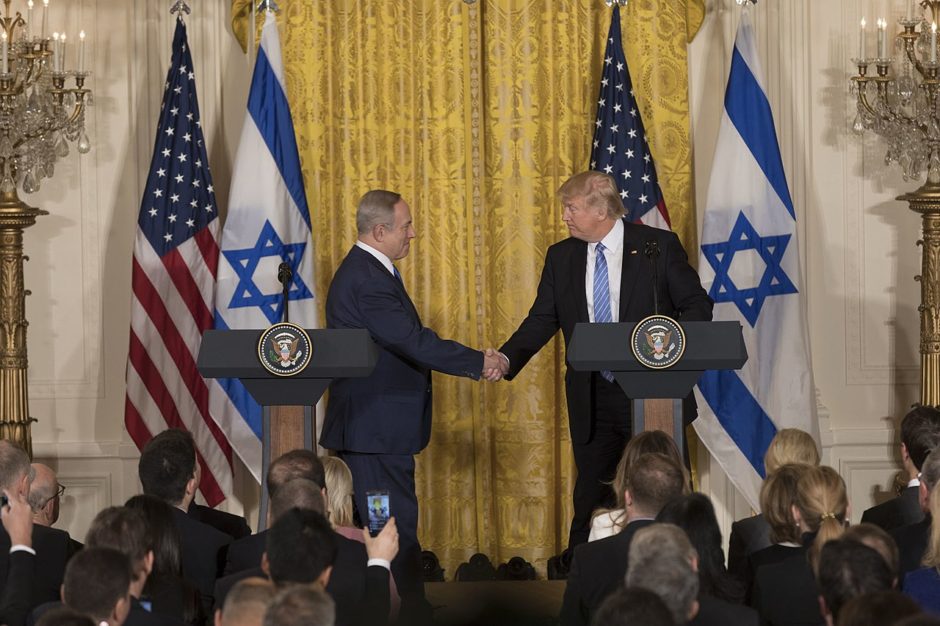Could Israel rely on the United States in a crunch?
That was the burning question Israelis doubtless asked themselves after a series of recent events in the Middle East.
President Donald Trump has hewed to a strong pro-Israel policy since his election three years ago. But the Israeli government was unnerved by Trump’s unwillingness to respond to Iran’s aggression in the Middle East last summer. And they were flustered by his announcement in October that U.S. forces would be unilaterally withdrawn from Syria, leaving his Kurdish allies at Turkey’s tender mercies after its invasion of northeastern Syria last month.
When several oil tankers in the Persian Gulf were attacked in separate incidents, the United States pointed a finger of blame at Iran — Israel’s greatest enemy — but held its fire. When Iran shot down a U.S. drone near Iranian territory, the United States condemned the Iranians but stopped short of taking retaliatory measures.

Israel was puzzled and disappointed by the Trump administration’s restraint, but remained conspicuously silent. At the end of October, however, Prime Minister Benjamin Netanyahu issued a veiled critique of the Trump administration, warning that Iran’s “brazenness” was increasing in the absence of a proper U.S. response.
Israel was similarly upset by Trump’s decision to withdraw some 1,000 U.S. troops from northeastern Syria, where the Kurds had established a measure of autonomy, and to allow Turkey to fill the void at the expense of the Syrian Democratic Forces, a Kurdish organization that the United States had supported logistically and financially.

The American betrayal of Kurdish fighters who had borne the brunt of the fighting against Islamic State was especially difficult to comprehend. But U.S. policy came into clearer focus when General Mark Milley, the new chairman of the U.S. Joint Chiefs of Staff, defended Trump’s moves by saying that while the Kurds were “partners,” Turkey — a NATO ally — was an American “ally.”
According to Daniel Shapiro, the former U.S. ambassador to Israel, the planned pullout of U.S. forces from Syria would work against Israeli interests because it would embolden Iran, leave the war against Islamic State unfinished, and strengthen Russia’s foothold in the region.

Washington subsequently shifted gears, announcing that about 500 U.S. troops would remain in northeast Syria to guard oil fields from possible attacks by Islamic State, but the damage was done. Trump’s Twitter-driven inconsistent pronouncements had caused concern and confusion not only in Israel but around the Middle East and western Europe.
As if this was not enough, Trump triggered consternation in Israel when he attempted to arrange a meeting with Iranian President Hassan Rouhani at the United Nations. Netanyahu reportedly tried to talk him out of it, but to no avail. Israel breathed a sigh of relief when Iran rejected Trump’s overture.
Trump appeared to publicly distance himself from Netanyahu after he failed to form a government in the wake of last September’s inconclusive general election. Asked to comment on the deadlock, Trump said, “Our relations are with Israel.” Surprisingly, he did not mention Netanyahu, with whom he appears to have formed close relations.
Despite these unsettling incidents, Trump has established himself as the most pro-Israel president in history.
Trump’s record speaks for itself:
He withdrew from the 2015 Iran nuclear agreement. He recognized Jerusalem as Israel’s capital. He moved the U.S. embassy from Tel Aviv to Jerusalem. He recognized Israel’s sovereignty over the Golan Heights. He distanced himself from the two-state solution and now seems partial to Israel’s current position that the Palestinians of the West Bank should be granted autonomy rather than statehood. He has voted against every anti-Israel resolution at the United Nations. He stopped U.S. payments to the United Nations Agency in charge of taking care of Palestinian refugees. He closed the PLO’s mission in Washington, D.C.

And earlier this month, U.S. Secretary of State Mike Pompeo declared that Israeli settlements in the West Bank and the Golan do not violate international law.
Netanyahu was very pleased with these initiatives. And while many Israelis appreciate Trump’s pro-Israel orientation, they fear that his erratic behavior, his transactional view of politics, his isolationist tendencies, and his aversion to being entangled in the “endless wars” of the Middle East will damage American credibility and therefore will harm Israel.
They have a point, of course. Trump may yet prove to be unreliable in a real emergency. But as Pompeo has correctly stated, the United States has been unwavering in its support of Israel.
This has been particularly true since Israel’s victory in the Six Day War. Since then, Israel and the United States have formed a strategic alliance, and Israel has become the United States’ most important regional ally, with all its attendant benefits.
The United States gives Israel $3 billion in military aid annually, plus additional funds for special defence needs. In 2016, in one of his last acts as U.S. president, Barack Obama approved the transfer of $38 billion in military assistance to Israel over the next decade.
During the three-week 1973 Yom Kippur War, the United States came to Israel’s rescue when it ran low on military supplies. And during the 1991 Gulf War, when Iraq fired 39 Scud rockets at Tel Aviv and Haifa in 19 attacks, the United States rushed Patriot missiles to Israel.

Despite occasional differences, Israel and the United States are bound together by shared values and interests and regard Iran, Hezbollah and Hamas as common enemies.
Israel, one of the most powerful countries in the Middle East, cannot be equated with the stateless and vulnerable Kurds even remotely and can defend itself. But Israelis still worry that their best friend zany patron, the United States, may not be there for them should the need arise one day.
